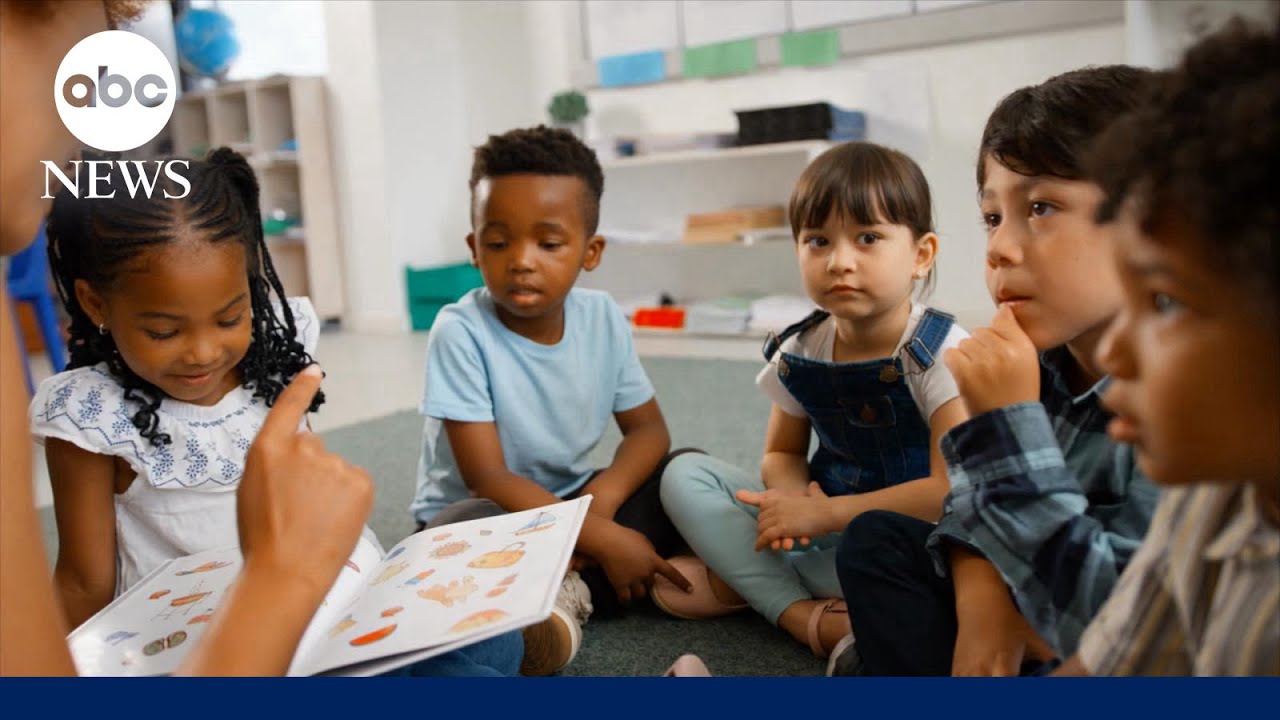COVID babies are going to kindergarten
Oh, it is almost time for back to school and school will be in session for children born during the COVID pandemic lockdown. Parents of these new kindergarteners aged between four and six are gearing up to enter a new social phase. This group of children in particular grew up in a world that avoided physical touch and facetof face contact. Now it’s time for parents to help dust off those social skills. Dr. Judith Joseph, one of my favorites, joins me now to talk about th this. Dr. Juna, thank you for being with us. It I truly it this I it makes me emotional thinking about it because my pandemic baby is going to kindergarten. It blows my mind. We often hear parents joke that pandemic babies are built different. Walk us through what makes this group of children different and how the pandemic may still affect them today. It’s nice seeing you again. You’re absolutely right. Uh a lot of times these parents were afraid. They it was uncertainty. They kept their kids close to them. They were afraid of germs. And they had longer and more extensive access to screen time. So, we’re talking about the formative important years where you’re supposed to be getting sensory play stimulation, but a lot of these children were on screen. So, what we know is that some of these kids did experience developmental delays, some social emotional learning issues. So, we want to be mindful of that as they enter into the real world for the first time. Yeah. So, what are some things that parents need to watch for as their children manage to adapt to a classroom setting? Well, things that you really want to look out for are whether or not they’re having any fine motor. So, these are problems gripping and doing things that a lot of kids should typically do. You want to look for things like uh verbal delays. So, if they’re having a hard time with sounding out words or reading and there are guidelines put out by the American Pediatric Association that shows you where your child should be. So, try to stick to those guidelines because if your child is slipping, you know, early intervention is really important during this time. It’s crucial. And if you’re a parent who maybe opted out of daycare prior to this, especially early on as everyone was in lockdown and was afraid to maybe bring in help, what are some tips to help your child ease into that social setting and being around other kids if they haven’t been really? This is a great question. A lot of the families that I work with will ask the same thing. So, what we’ll do is we’ll start to expose your child and the family because, you know, parents are anxious too to the idea of returning to school. So they’ll do projects together like writing a letter to the teacher, you know, and then take the child to the school or show child the child pictures of the school or the classroom. And when you reach out to your teacher, you know, you can actually have access to this early on before school starts. So what you’re doing is you’re exposing your brain to something that you know you think is going to be scary, but the more you expose your brain to it, the more comfortable you get. That that those are some really good tips. And in general, not just for kids heading to kindergarten, but any kid heading back to school and for parents, what should they keep in mind about kids in anxiety when it comes to a new school year? Because so many are likely nervous. Look for the typical signs of anxiety. So, these are things like problems with sleep, you know, changes in your appetite, whether or not your kid’s more snappy or irritable. All of those are early signs that your child may be anxious. So start to talk about it openly. You may want to share like, you know, stories about you when you were a child returning back to school because it normalizes sharing emotions. But definitely prevention is key. So start to talk about it now. You have a couple of weeks. Start to set a routine. Start going to bed a little earlier. Start getting accustomed to, you know, this wake up routine because you want to start doing that weeks before school starts, not the same week that school starts. the that is such an important reminder and I love as as the dialogue around mental health and different things has really opened up thinking about it through the lens of parenting and so talking to kids about those emotions naming them helping them work through them uh it is a joy and a privilege thank you so much Dr. Judith Joseph for being with us. Thanks J. Great to see you again.
Dr. Judith Joseph, a psychiatrist and author, joins ABC News Live to discuss parents’ reactions to babies born during the COVID-19 pandemic in 2020.
Subscribe to ABC News on YouTube: https://abcnews.visitlink.me/59aJ1G
Watch 24/7 coverage of breaking news and live events on ABC News Live: https://www.youtube.com/watch?v=gN0PZCe-kwQ&ab_channel=ABCNews
Watch full episodes of World News Tonight with David Muir here: https://youtube.com/playlist?list=PLQOa26lW-uI8ixlVw1NWu_l4Eh8iZW_qN&feature=shared
Read ABC News reports online: http://abcnews.go.com
ABC News Digital is your daily source of breaking national and world news, exclusive interviews and 24/7 live streaming coverage. ABC News is the home to the #1 evening newscast “World News Tonight” with David Muir, “Good Morning America,” “20/20,” “Nightline,” “This Week” with George Stephanopoulos, “ABC News Live Prime” with Linsey Davis, plus the daily news podcast “Start Here.”
—––
Connect with ABC News on social media:
Facebook: https://www.facebook.com/ABCNews
Instagram: https://www.instagram.com/abcnews
TikTok: https://www.tiktok.com/@abcnews
X: https://twitter.com/ABC
Threads: https://www.threads.net/@abcnews
WhatsApp: https://whatsapp.com/channel/0029VajTNakKWEKkXoAPIR11
LinkedIn: https://www.linkedin.com/company/abcnews

